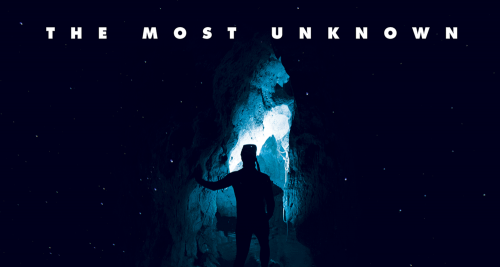Cheney’s revolutionary science documentary
Ian Cheney’s (YC ’02) 2018 film The Most Unknown takes a different approach than most science documentaries. Although his film explores how people study organisms, space, quantum physics, geobiology, and the human mind, Cheney, a graduate of Yale College and the Yale School of Forestry and Environmental Studies, ultimately tells a story about the field of science itself–one about what it means to think, question, experiment, and live as a scientist.
The Most Unknown’s opening credits acknowledge that the documentary itself is an experiment. The film takes viewers around the globe, from ocean floors to mountain peaks, to meet nine accomplished scientists. As the quirky stories of those researchers intertwine and each travels to learn about the work of another, Cheney showcases the excruciatingly detailed and thoughtful processes behind scientific discoveries. The film highlights the passion that these scientists throw into their work and the joy that comes with contributing even a bit more to both the “answered” and “yet-to-be-understood” piles within their respective fields.
A microbiologist obsessed with slime visits a physicist who enthusiastically explains how his “simple” dark matter-detecting machine works. Sardonically, the physicist refuses to speak on the whereabouts of dark matter because he believes that scientists should not speculate without substantial reasoning and experimentation. Later, we travel to the peaks of Hawaii with an astrophysicist and an astrobiologist: macro- and micro-scales of science align when the astrobiologist, who spends most of his time looking through microscopes, saw how similar the speckled night sky through a telescope looks to the cosmos-like arrangement of archaea under a microscope. Finally, we meet a cognitive psychologist, Yale professor and Silliman Head of College Laurie Santos, on an island near Puerto Rico inhabited by monkeys. As some of the last images taken before Hurricane Maria hit just three weeks later, the beautiful footage from the island resonates especially deeply with audiences.
Regardless of the various scientific fields and special environments in which they work, these nine scientists all have stories that beautifully stitch together to shed light on universal unknowns. Santos, whose work has centered on applying scientific answers in ways that directly help people, hypothesized that most scientists do not have what psychologists refer to as a need for certainty. Scientists are comfortable admitting the extents of their knowledge. Thus, The Most Unknown illuminates the human face of science–a particularly important feat given how the field often seems so distant, sterile, and daunting. “How I think about science in just the last few years has expanded–not just answering these questions in ivory tower pursuits but finding ways to bring the science back to people,” Santos said.
The Most Unknown humbly reminds us that even scientists lack all of the answers. After all, questions are what perpetuate the grand scientific experiment of uncovering the unknowns.

